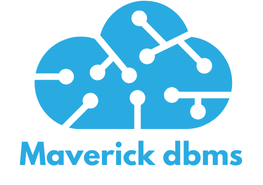Credential verification in UK universities faces challenges like fraud and inefficiencies. Blockchain technology offers a transparent and immutable solution to ensure authenticity. By leveraging this innovative approach, institutions can streamline verification processes, build trust among stakeholders, and enhance the overall reputation of the educational system. Explore how integrating blockchain can revolutionize credential verification, safeguarding the integrity of academic achievements while fostering greater confidence in the qualifications of graduates.
Understanding Blockchain Technology
Blockchain technology is a revolutionary concept that underpins cryptocurrencies and other digital innovations. At its core, blockchain is a type of distributed ledger technology (DLT), which means it is a decentralized database that records transactions across multiple computers. This ensures that the data is not stored in a single location, making it more secure and less susceptible to tampering.
Have you seen this : Maximizing Predictive Maintenance in the UK Energy Sector: Harnessing the Power of Machine Learning
The core principles of blockchain revolve around transparency, security, and immutability. Transparency is achieved as all participants in the network have access to the same data, which is updated in real-time. This openness allows for greater trust among users, as everyone can see the same information.
Security in blockchain is enhanced by cryptographic techniques that protect data and verify transactions. Each block in the chain contains a cryptographic hash of the previous block, a timestamp, and transaction data, making it extremely difficult to alter any information without detection.
Also read : What steps should UK-based ecommerce platforms take to optimize cross-border transactions?
Immutability, one of the key features of blockchain, refers to the fact that once data is recorded on the blockchain, it cannot be changed or deleted. This permanence adds an additional layer of trust and reliability, as users can be confident that the information they see is accurate and unchanged.
In summary, blockchain technology, through its distributed ledger approach, offers a robust framework for secure, transparent, and immutable data management, making it a cornerstone of modern digital transactions.
Benefits of Blockchain for Credential Verification
Blockchain technology offers significant advantages for credential verification, addressing long-standing issues in the educational sector. One major benefit is the elimination of fraud and forgery in academic credentials. By using blockchain, educational institutions can issue credentials that are tamper-proof and easily verifiable, ensuring authenticity. Each credential can be stored as a unique and immutable record on the blockchain, making it virtually impossible to alter or forge.
Another advantage is the increased efficiency and speed in the verification process. Traditional methods of credential verification can be time-consuming and cumbersome, often requiring manual checks and third-party confirmations. Blockchain streamlines this process by allowing instant access to verified records, reducing the time and resources needed for verification.
Furthermore, blockchain enhances trust and integrity in educational qualifications. With all records being transparent and immutable, employers and institutions can have confidence in the legitimacy of the credentials presented. This transparency fosters greater trust among all parties involved, as the data is consistently reliable and accessible.
In summary, blockchain technology significantly improves credential verification by ensuring enhanced security, efficiency, and trust, ultimately upholding educational integrity.
Case Studies: UK Universities Implementing Blockchain
Exploring how UK universities are applying blockchain technology provides valuable insights into its practical benefits in academia. Several institutions have taken significant steps in integrating blockchain into their systems, showcasing real-world examples of its applications.
University of Edinburgh's Blockchain Initiatives
The University of Edinburgh has been at the forefront of blockchain applications, focusing on both research and practical implementations. Their initiatives include partnerships with industry leaders to develop blockchain-based solutions for secure data management. By leveraging blockchain, the university aims to enhance transparency and security in academic records. Feedback from stakeholders indicates a positive reception, with users appreciating the streamlined processes and improved data integrity.
University of Cambridge and Digital Credentialing
The University of Cambridge has embraced blockchain for digital credentialing, allowing for the secure issuance and verification of academic qualifications. This initiative has resulted in reduced verification times and increased trust in the authenticity of credentials. The university's approach has been well-received, with stakeholders noting the ease of access and reliability of blockchain-based credentials. Lessons learned include the importance of collaboration with tech partners to ensure seamless integration.
Other Notable UK Institutions Exploring Blockchain
Several other UK universities are also exploring blockchain applications. These institutions are experimenting with blockchain in areas such as student identity verification and academic publishing. Outcomes from these explorations highlight the potential for blockchain to revolutionize data management in education. Feedback from users underscores the benefits of enhanced security and efficiency, although challenges in adoption and scalability remain a topic of discussion.
Challenges and Limitations of Blockchain in Education
Implementing blockchain technology in education is not without its challenges. Technical challenges arise when integrating blockchain with existing systems, as many educational institutions rely on legacy systems that are not easily compatible with new technologies. This often requires significant investment in infrastructure and expertise, which can be a barrier for some institutions.
Data privacy is another significant concern. While blockchain is secure, the immutable nature of the data poses challenges in terms of compliance with data protection regulations, such as GDPR. Institutions must ensure that sensitive information is handled appropriately, balancing transparency with privacy needs.
Institutional resistance is also a notable hurdle. Traditional academic institutions may be hesitant to adopt blockchain due to a lack of understanding or fear of disrupting established processes. This resistance can slow down the pace of adoption, despite the potential benefits of blockchain technology in enhancing educational processes.
Comparing Blockchain and Traditional Verification Methods
Traditional methods of credential verification have long been the standard in educational institutions. These methods typically involve manual checks, third-party verifications, and extensive paperwork. While they have been effective to some extent, they are often time-consuming and prone to human error. The reliance on physical documents can lead to issues such as fraud and forgery, as well as delays in processing times.
In contrast, blockchain technology offers a more streamlined and secure approach. By utilizing a decentralized ledger, blockchain ensures that credentials are tamper-proof and easily verifiable. This eliminates the need for third-party verification, significantly reducing the time and resources required. Furthermore, the immutability of blockchain records enhances trust in the authenticity of the credentials.
Despite these advantages, there are potential benefits to a hybrid model that combines both traditional and blockchain methods. Such an approach could leverage the strengths of blockchain for security and efficiency while retaining the familiarity and established processes of traditional methods. This could facilitate a smoother transition for institutions hesitant to fully adopt blockchain technology, allowing them to gradually integrate new systems while maintaining existing protocols.
Future Prospects of Blockchain in Higher Education
As technological innovations continue to evolve, the role of blockchain in education is poised for significant transformation. Future trends suggest an increasing integration of blockchain into academic systems, with a particular focus on credential verification. This shift is driven by the need for more secure and efficient methods of managing educational records.
Emerging Trends in Blockchain Technology within Academia
One of the most promising emerging trends is the development of blockchain-based platforms that facilitate seamless interaction between educational institutions and employers. These platforms aim to provide a comprehensive, verifiable record of a student's academic journey, enhancing employability and reducing the time spent on background checks. Additionally, there is growing interest in using blockchain for student identity management, which could streamline enrollment processes and protect student data.
Predictions for the Adoption of Blockchain in Credential Verification
Experts predict that the adoption of blockchain for credential verification will accelerate in the coming years. As educational institutions seek to combat credential fraud and improve verification processes, blockchain offers a decentralized solution that ensures data integrity. The immutability and transparency provided by blockchain technology are likely to become standard features in academic credentialing, leading to a shift away from traditional methods.
Expert Opinions and Insights on the Long-Term Impact on Education Systems
Industry experts are optimistic about the long-term impact of blockchain on education systems. They foresee a future where blockchain not only enhances data security but also fosters collaboration between institutions worldwide. This could lead to the creation of a global education network, where students can easily transfer credits and qualifications across borders. Furthermore, the use of blockchain in education is expected to drive innovation, encouraging institutions to adopt more technologically advanced solutions in their operations.
In conclusion, the future of blockchain in higher education is bright, with numerous opportunities for growth and improvement. As institutions continue to explore and implement blockchain solutions, the educational landscape is set to become more interconnected, efficient, and secure.











